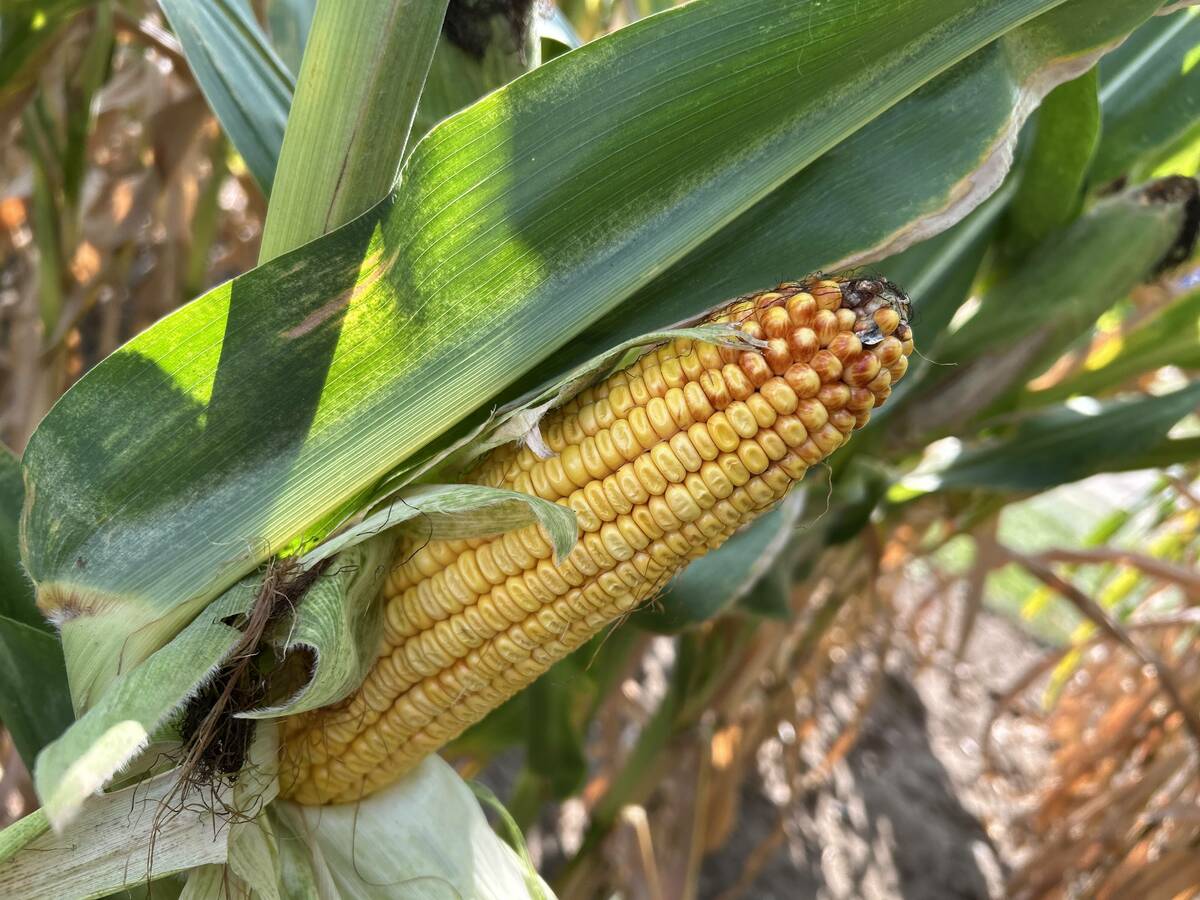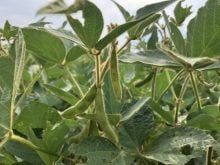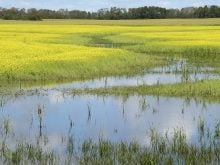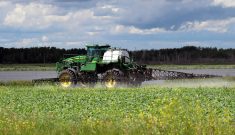LOREBURN, Sask. – High winds, frigid temperatures and poor visibility failed to keep 20 farmers from gathering to get a clearer picture of their rights as landowners with oil and gas piplines on their property.
The group met with the Canadian Alliance of Pipeline Landowners Associations in Loreburn on Feb. 1.
Bruce Hopkins, a mixed farmer from Outlook, Sask., has eight pipelines representing four companies crisscrossing his land and is concerned about who will be responsible when the pipelines are abandoned.
“On a quarter section that could be a big clean- up bill,” he said.
Read Also

Crop estimates show mixed results
Model-based estimates used by Statistics Canada showed the 2025/26 crop year has seen increases in canola, corn for grain, oats and lentils production while seeing dips in spring wheat, durum wheat, soybeans and barley in comparison to 2024/25.
He feared farmers facing $200,000 clean-up costs could walk away, leaving the rural municipality on the hook.
Hopkins has specific concerns on his farm: caving trenches; poorer crop production near the pipeline and restrictions on crossing the pipeline easements with farm equipment.
Ken Habermehl of Macrorie, Sask., said it’s time to organize farmers so they can speak with one voice on common issues.
He said he is noticing a shift in responsibility for the pipeline from energy companies to farmers.
For example, he must be careful not to seed potatoes too deep near the pipeline on his irrigated land.
Habermehl wondered how pipelines will affect environmental farm plans and assessments and farmers’ ability to borrow from banks against contaminated land.
“We are trying to be better stewards of the land, but we have people (servicing the lines) on our land who are not part of our community,” he said.
Habermehl cited a high number of recent pipeline excavations and repairs in the Loreburn area, noting many pipes in Western Canada are more than 50 years old and cross waterways.
Pipes also vary in size, with many urban areas requiring thicker pipes than in rural zones.
Those concerns prompted him to become founding president of the new Saskatchewan Association of Pipeline Landowners, which will work with CAPLA.
The Saskatchewan group had 50 members by Feb. 1, with two more meetings scheduled in the province.
David Core of Ontario said his goals are to bring farmers together and
increase public awareness of pipelines.
“We want to get farmers to understand what they can do by working together,” he said.
Provinces such as Manitoba have already organized 170 landowners in response to a proposed new pipeline project. Others, such as Saskatchewan, are just getting started on the daunting task of addressing pipeline issues, Core said.
CAPLA wants easement agreements and compensation packages reviewed periodically and an annual fee paid by companies for the use of land surrounding pipelines.
Core encouraged farmers not to sign surveying or easement agreements but rather to ask questions and challenge issues with land agents who show up at their door.
He also encouraged landowners to get rural municipalities on side because it could become a liability to the broader community if the farm is abandoned or contaminated.
“Your job is to protect your rights and get as much as possible out of it,” he told farmers at the meeting. “They do not understand our issues.”
Core cited the wide disparity of compensation paid in different areas, noting the one time $100,000 per farm fee that a pipeline company paid recently in Iowa compared to the $6,000 paid in Western Canada.
Decades ago, farmers were commonly paid around $300, he said.
CAPLA is seeking a one-time $22,000 per acre payment, as granted to a group in Ontario, but believes there is also a case to be made for annual fees.
“Without it, the land with pipelines is a liability,” Core said.
CAPLA was formed to represent landowners with pipelines and speak to government on issues related to safety, liability, environment and compensation while providing education to members and the general public.
It recently initiated a class action suit to raise awareness of these issues, Core said. He also told farmers they need to arm themselves with knowledge in light of new pipeline projects proposed in Canada.
“You need a voice. Our job is to get an army,” Core said.














